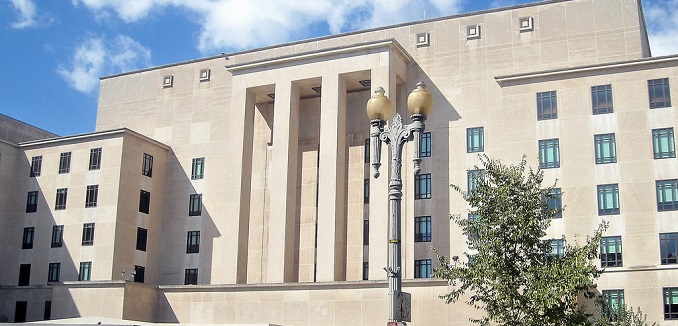The State Department’s new strategy for fighting terrorism has been criticized by experts for failing to specifically mention the threat of Islamic extremism.
The Joint Strategy on Countering Violent Extremism (.pdf), which was published last week, outlines the government’s official diplomatic anti-terror plan. In his introduction to the document, which was co-written with USAID, the U.S. government’s foreign aid bureau, Secretary of State John Kerry hailed the report:
Today we take another step forward. The Department of State and USAID have produced a proactive international strategy recognizing immediate needs, utilizing our strengths, and demonstrating our will to comprehensively address the challenge of violent extremism, including the root causes. Together, we are building organizational structures needed to pursue a more aggressive and integrated approach to this challenge. This is a generational struggle, but we must begin now.
But a memo by the Henry Jackson Society, a London-based think tank, pointed out that “the word ‘Islam’ does not once appear in the US government’s CVE [Countering Violent Extremism] document. Neither does ‘Islamism’, ‘Islamist’, ‘radical-Islam’, ‘radical-Islamist’ or any other such formulation.”
The memo noted that the phrase “countering violent extremism” originated in the United Kingdom, but its use in the State Department document “is notable for its attempt to avoid pin-pointing the problem” and “a way to avoid talking about Islamist extremism.”
Doubtless as Homeland Security Chief Jeh Johnson has claimed in the past, all this is a very clever attempt to ensure that people do not think you are talking about anything connected to the religion of Islam. But we are. Radical Islamist movements are our primary domestic and foreign security threat, whether we name it or not. The British government, to give it credit, moved away from a reluctance to remotely identify this in the early years of CVE, to an awareness that such denial was not just futile but counter-productive….It is only [due to] the perception that government is deliberately trying to avoid identifying the facts that everyone else can see with their own eyes, that people risk turning to other extremes.”
Robert Satloff, executive director of the Washington Institute for Near East Policy, called the document “important,” but also questioned the omission of any explicit mention of Islamic extremism.
Drafters had to work overtime to write 000's of words while avoiding any reference to #Islamic extremism, radical imams, or jihadists. 2/3
— Robert Satloff (@robsatloff) May 27, 2016
Without citing problem of #Islamic extremism, how to discuss solutions of engaging #Muslim communities and supporting Muslim moderates? 3/3
— Robert Satloff (@robsatloff) May 27, 2016
[Photo: AgnosticPreachersKid / Wikimedia ]




